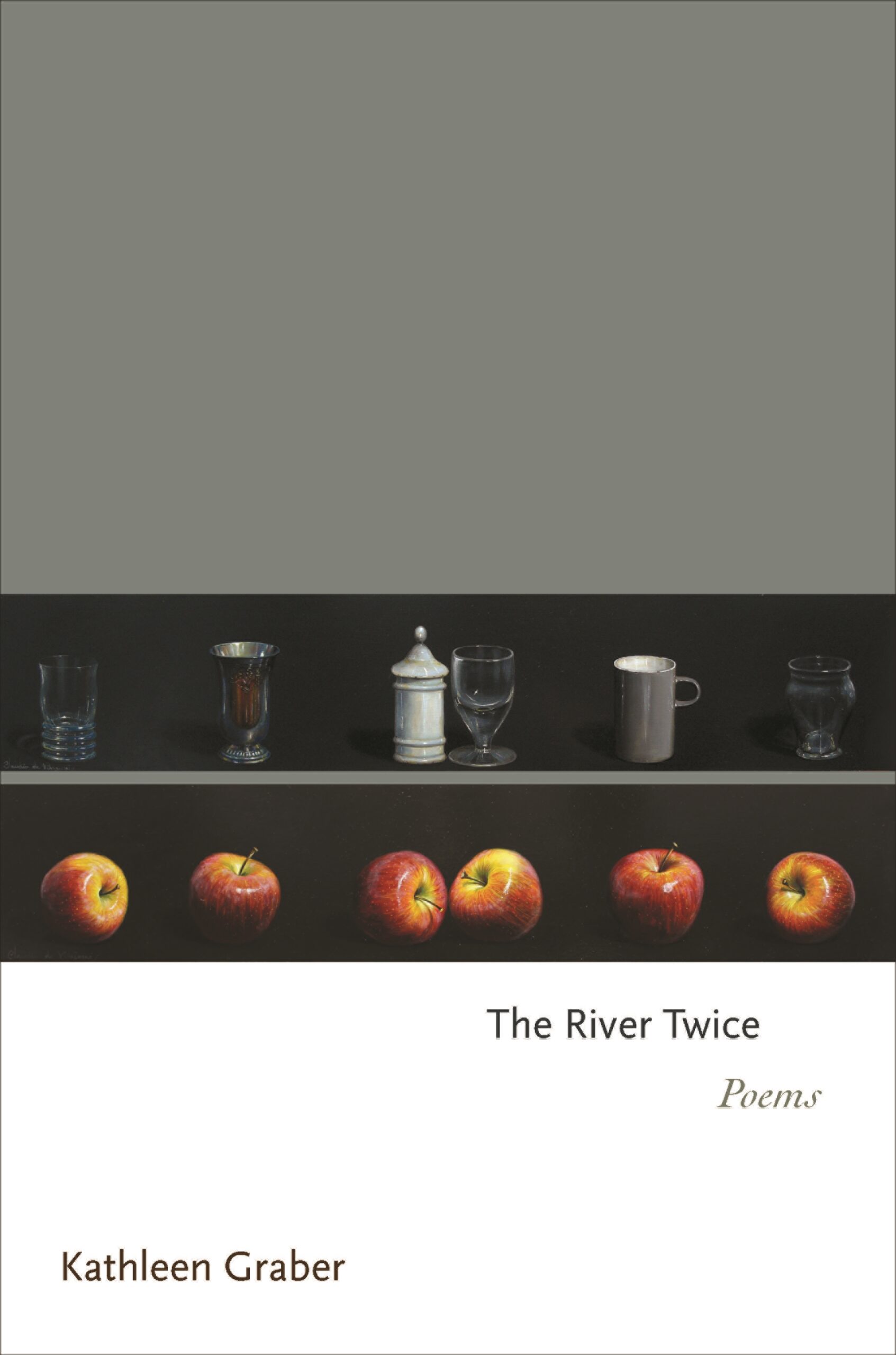We Still Love, Past Reason: Alexandra McIntosh Reviews Kathleen Graber's The River Twice

The melancholy, pre-Socratic philosopher Heraclitus may not seem an obvious choice as a foundational influence for a book of poetry situated firmly in America’s 2010s. Kathleen Graber’s The River Twice, however, beautifully employs fragments of ancient thought to examine modern concerns and desires. The collection includes two epigraphs, both quotes from Heraclitus, one of which provides the book’s title: “You cannot step twice into the same river, for other waters are continually flowing on.” It becomes clear, however, that the book is an attempt to do just that— to return to the river, to examine our personal and national histories.
We see this dual concern for the individual and collective in the repetition of poem titles beginning with “Self-Portrait” (five times), and “America” (eight times). One such poem, “Self-Portrait with No Internal Navigation,” begins the book. Here Graber demonstrates her dexterity with language, using words with violent connotations to result in beauty. This is how the poem opens:
Have you ever been arrested? The pigeon arrests me.
No, not the wing, but the sturdy round body & the sheen
of the throat, like the interior of a snail’s shell or the bruise
of spring—think of the lilac blistered with blossoms,
of a burned moor’s sudden eruption into heather—
a beauty we expect only from what’s broken.
From this first poem onward, we see the indivisibility of loveliness and decay; of bruises, blisters, and eruptions giving way to beauty. Perhaps we can return to the river, but the things we once loved there have aged. The poems throughout the book reflect this loss, and are at once nostalgic and celebratory, honest and pained. Just like the pigeons Graber goes on to describe in the opening poem—who live on a ferry boat to be close to humans who swat at them with brooms and paint their roosts with burning chemicals—we “still love, past reason.”
Graber wrestles with this paradox, this love of impermanent and damaged things, in her “America” poems. In “America [October]” the speaker addresses our nation:
You were
conceived in a genocidal, colonial violence,
& yet, like the universe, you & I are here today,
going on & on, discovering that we were naïve,
or simply wrong, about almost everything we thought
we knew.
Graber, like Heraclitus, questions our nostalgia and loyalty to the familiar, unflinchingly addressing America’s brutal history; we are here, after all, in this life that is at times unspeakably beautiful, because of it. Even knowing the shameful ways this nation came into our hands, we “still love” this land we have inherited. Graber suggests that in modern American patriotism, guilt, and pride must coalesce.
The River Twice conceives of a world where such balance is essential. The poems’s speakers do not shut their eyes to the ugliness of their nation or the world, but neither do they lose sight of their beauty and potentiality. Intellectual and theoretical musings are prompted in the poems by references to current events, modern art, news stories, or historical writings. The breadth of information is wide in this collection, but the reader finds grounding images as well—the “indigo bunting,” the “yellow finch,” “Domino Sugar,” “the jumping meadow mouse,” “the fox,” and so on. These specific and vivid pictures provide footing for the reader as they navigate the intellectual concerns that Graber so expertly lays out.
And these specific beauties are the very things we stand to lose as we are ushered forward through time. It is beauty, Graber asserts, that makes us sorrowful when it is lost. The speaker muses on this theme in the poem “A Short History of Sorrow.”
perhaps we are writing
a short history of happiness, for we each seem amazed
simply to be able to reach out & touch the other’s cheek.
Who can doubt that suffering arises from our attachment
to what cannot last?
Graber invites us to do what Heraclitus says we cannot—to return to the river of our past. In returning, though, we find that things have changed in substantial and alarming ways. It is the very act of returning that makes a return impossible, for now we know that the river as we knew it no longer exists. And it is the happiness, the attachment, that makes the sorrow inevitable.
In the poem, “The Fifth Season,” the speaker grieves the loss of a brother, their thoughts meandering as they look through his books on philosophy. At one point the speaker recalls:
And last winter, one of my students, riding home
on his bike, was struck by a car driven by an 85-year-old-man.
The driver leapt out & seeing him unhurt, grabbed the sides
of the boy’s head, one palm to each ear, & pulled him toward him
& kissed his brow.
We find ourselves both as the old man and the boy—both aged and youthful, both in danger of the crash of time, and both kissing the brow of youth. Loss is inevitable, yes, but think of the beauty! This poem ends with a similar thought—
I want to turn again to the passage
in which it is explained how love is greater than knowledge.
It is evident from this book that Graber is an extremely knowledgeable poet, but the final impression I felt was the depth of her love. The River Twice is a soulful meditation on impermanence, inviting us to sit in memory as the waters of time pummel us beneath their flow, while love—for ourselves, our families, our natural and cultural homes—gives us breath.